
Many couples hoping to conceive explore various methods to boost their fertility. One such approach gaining attention is juicing. Are you curious if fertility juice can improve fertility and help to get pregnant? Discover the power of juicing to enhance your chances of conception! Juicing is a simple and delicious way to boost fertility naturally.
By incorporating nutrient-rich fruits and vegetables into your daily routine, you can provide your body with essential vitamins and minerals. Explore whether juicing truly helps enhance fertility and discuss the top fertility juices to support your reproductive health.
Infographic on Top Fertility Juices to Help You Get Pregnant
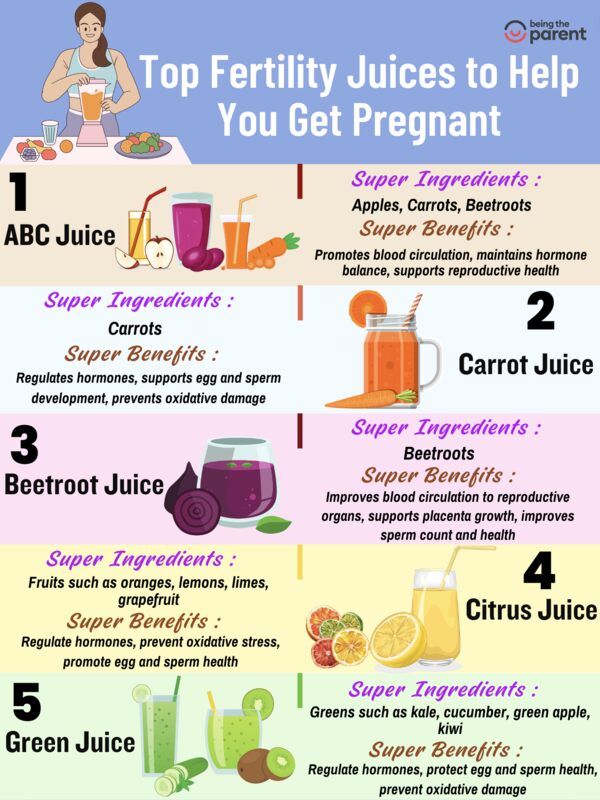
What is Fertility Juicing?
Nutrition has a major effect on fertility. A diet rich in vital nutrients and antioxidants can preserve and improve egg and sperm health, prevent oxidative stress, and help balance hormones.
Fruits and vegetables are excellent sources of fertility nutrients (1). This nature of fruits and vegetables has brought fertility juicing into prominence.
Fertility juicing is a method of using fresh fruits and vegetables to make delicious and nutritious drinks that can help improve your chances of getting pregnant. These juices are packed with vitamins, minerals, and antioxidants that support reproductive health and hormone balance, making it easier to conceive.
The best part about fertility juicing is that you can combine two or more fruits or vegetables or both into a glass of delicious and healthy drink. This ensures the supply of a whole range of nutrients that would be otherwise not possible.
Can Juicing Boost Fertility?
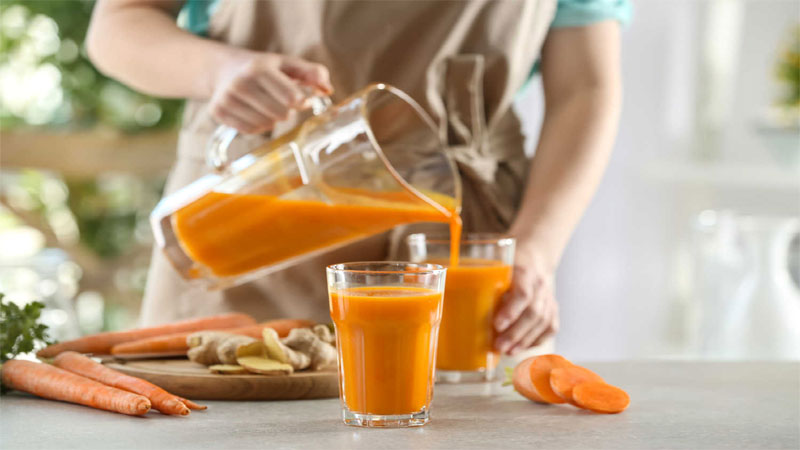
While juicing alone cannot guarantee fertility, it can promote a healthy lifestyle when trying to conceive.
Juicing provides a concentrated dose of essential nutrients that support reproductive health, such as folate, vitamin C, and antioxidants. These nutrients help regulate hormones, enhance egg and sperm quality, and improve overall reproductive function (2), (3).
Antioxidants also play a vital role in correcting hormone-related disorders that may be affecting fertility (4).
Additionally, juicing can help maintain a healthy weight, manage stress levels, and detoxify the body, all of which contribute to optimal fertility.
However, it’s important to consult with a healthcare professional and focus on a well-rounded approach that includes a balanced diet, regular exercise, and adequate rest for the best chances of conceiving.
[Read : Diet and Lifestyle Changes When Trying to Conceive]
Will Fertility Juice Help You to Get Pregnant?
While juicing can provide important nutrients that support reproductive health, it’s essential to understand that it is not a guaranteed solution for getting pregnant.
Juicing for fertility can contribute to overall wellness by delivering a concentrated dose of vitamins, minerals, and antioxidants that promote hormone balance and reproductive function.
However, fertility is a complex issue influenced by various factors. Juicing can be a helpful component of a fertility-friendly lifestyle, but it should not be relied upon as the sole method for achieving pregnancy.
Top 5 Juices That Help Boost Fertility
There are several top juices that are believed to support fertility. These include:
1. ABC Juice For Fertility
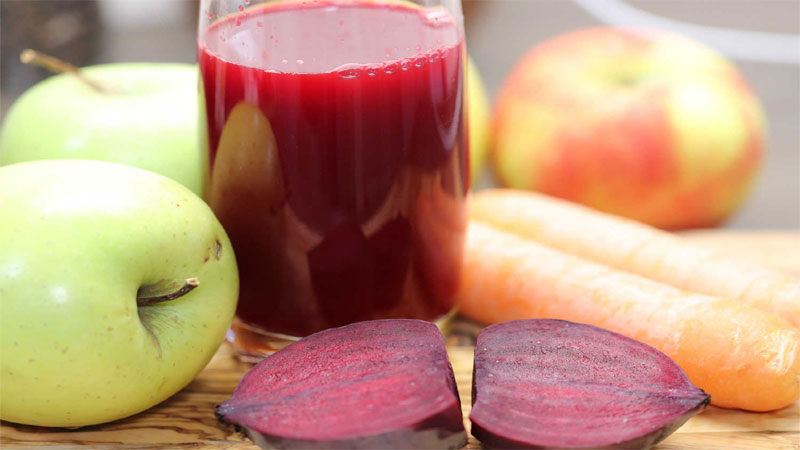
ABC juice is a popular fertility juice that combines the goodness of three key ingredients: apple, beetroot, and carrot.
Apple provides essential vitamins and antioxidants (5), while beetroot supports blood flow and hormone balance (6). Carrots are rich in beta-carotene and other nutrients that promote reproductive health (7).
By blending these ingredients together, ABC Juice aims to provide a nutrient-packed drink that supports fertility.
It’s important to note that while ABC juice can be a beneficial addition to a balanced diet, it should not be considered a guaranteed solution for fertility issues. Consulting with a doctor is advised for personalized guidance.
2. Carrot Juice For Fertility
Carrot juice is a fertility superfood and helps boost sperm quality and quantity. The antioxidants also improve sperm morphology and the ability of the sperm to fertilize the egg.
Carrots are rich in beta-carotene, a precursor to vitamin A, which is essential for reproductive health. Vitamin A helps regulate hormone production and supports the development of healthy eggs and sperm (8).
Carrot juice is also a good source of antioxidants, which protect reproductive cells from damage. Additionally, the vitamins and minerals in carrot juice help maintain overall reproductive system health.
While carrot juice can be a nutritious addition to a fertility-friendly diet, it’s important to remember that it’s just one component and a holistic approach to fertility is recommended.
3. Beetroot Juice For Fertility
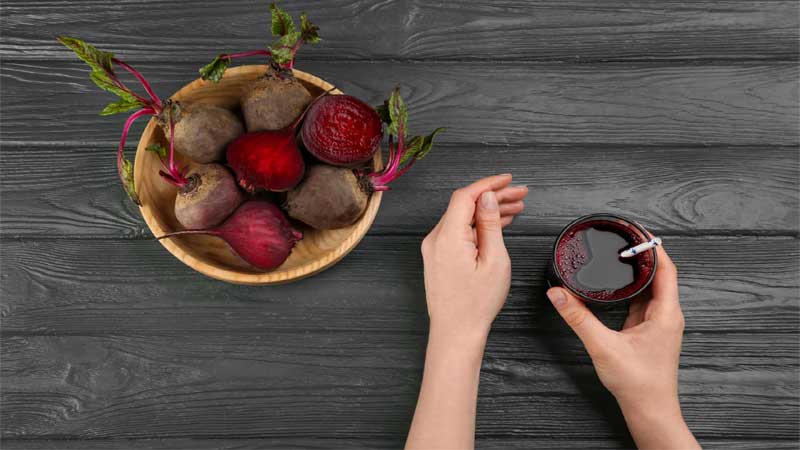
Beetroot juice is often trusted for its potential benefits in promoting fertility. It contains nutrients like iron, folate, and antioxidants important for reproductive health.
The nitric oxide present in beetroot supports healthy blood flow to the reproductive organs, while folate helps prevent birth defects and supports fertility (9). The antioxidants in beetroot juice protect reproductive cells from damage caused by oxidative stress.
Drinking beetroot juice promotes implantation and pregnancy success rates (9A) and supports placenta growth. It also helps with sperm count and sperm health and improves overall fertility levels in men.
While beetroot juice can be a nutritious addition to a fertility-friendly diet, you should always consult a healthcare professional for personalized guidance and to address any specific fertility concerns.
4. Citrus Juice For fertility
Citrus juices promote fertility by regulating hormones, improving egg and sperm health and aiding cervical mucus production.
They are rich in vitamin C, which is known for its antioxidant properties. Vitamin C helps protect eggs and sperm from oxidative stress, which can affect their quality.
Additionally, citrus juices are a good source of folate, a nutrient important for reproductive health. Folate aids in DNA synthesis and supports healthy cell division.
Drinking citrus juices can also enhance the absorption of iron from plant-based foods, which is essential for fertility. Including citrus juices as part of a balanced diet can support overall reproductive health.
5. Green Juices For Fertility
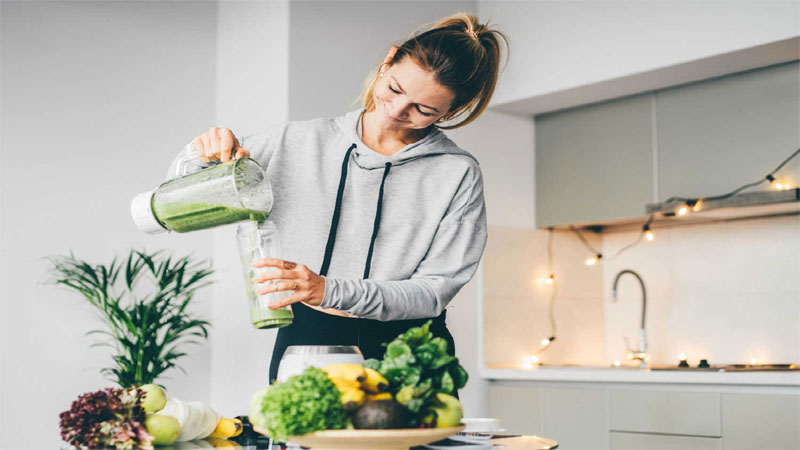
Green juices benefit fertility by promoting sperm count and egg health. Green leafy vegetables such as spinach and kale are rich in folate, iron, and other nutrients that support reproductive health (10).
Folate aids in proper DNA synthesis and cell division, crucial for healthy eggs and sperm. Iron is essential for oxygen transport and hormonal balance.
Additionally, green juices provide antioxidants that protect reproductive cells from damage caused by oxidative stress.
Drinking green juices for fertility can also help maintain a healthy weight and support overall wellness, which are important factors for fertility. Incorporating green juices into a well-rounded diet can promote reproductive health and increase the chances of conception.
Overall juicing fruits and vegetables is an excellent way of improving their antioxidant activity, which, in turn, can have a positive impact on fertility and pregnancy (11).
[Read : Vitamins Which Help Conceive Faster]
Who Can Opt For Fertility Juicing?
Anyone who is trying to conceive can opt for fertility juicing. It is a natural and healthy approach to support reproductive health. Fertility juicing can be beneficial for both men and women, providing essential nutrients that may enhance fertility and improve overall reproductive function.
Who Should Not Opt For Fertility Juicing?
Individuals with certain medical conditions or on specific medications should consult with a healthcare professional before opting for fertility juicing.
Those with diabetes, kidney issues, or certain digestive disorders may need to monitor their sugar or nutrient intake.
Additionally, pregnant or breastfeeding women should seek guidance regarding specific juices and ingredients.
Are There Any Drawbacks of Juicing For Fertility?
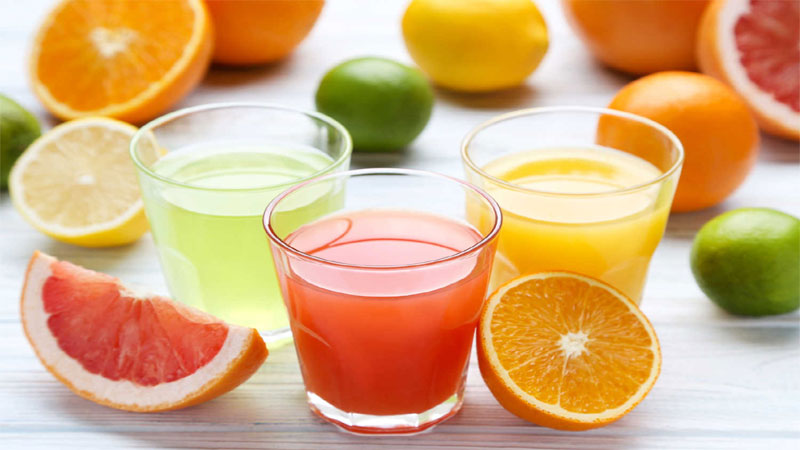
While juicing can provide benefits, there are a few drawbacks to consider. Juicing removes the fiber from fruits and vegetables, which is important for digestion and satiety. Additionally, some juices can be high in natural sugars, so moderation is key. It’s important to maintain a balanced diet and consult with a doctor for specific guidance.
When to Consult a Doctor For Fertility Juicing?
It is advisable to consult a doctor before starting fertility juicing if you have any underlying medical conditions, are on medications, or have specific dietary restrictions.
Additionally, if you have been trying to conceive for an extended period without success, a doctor can provide guidance and evaluate any potential underlying fertility issues.
In summary, while fertility juice is often promoted as a means to enhance fertility and to get pregnant, its effectiveness remains uncertain. Incorporating nutrient-rich juices may support certain aspects of fertility and your overall health. But it is always good to consult your doctor before you start any new therapy or lifestyle in relation to improving your chances of conceiving.
FAQ’s
1. Which Juice is Best For Fertility?
While no specific juice guarantees fertility, consuming a variety of nutrient-rich juices like carrot, beet, and green vegetable juices can support reproductive health by providing essential vitamins, minerals, and antioxidants. ABC juice is considered one of the best juices for fertility. Green juices are popular too.
2. Is Beetroot Juice Good For Conceiving?
Yes, beetroot juice is beneficial for conception due to its high folate content, which supports the healthy development of the baby’s neural tube. It also boosts blood flow and contains antioxidants that promote reproductive health.
Read Also: Top 10 Foods To Eat When You Are Trying To Conceive
References
- Cristodoro M, Zambella E, Fietta I, Inversetti A, Di Simone N. Dietary Patterns and Fertility. Biology. 2024; 13(2):131 – .https://www.mdpi.com/2079-7737/13/2/131
- Roos Marthe Smits, Rebecca Mackenzie-Proctor, Kathrin Fleischer, Marian G. Showell, Antioxidants in fertility: impact on male and female reproductive outcomes, Fertility and Sterility, Volume 110, Issue 4, 2018, Pages 578-580. – https://www.sciencedirect.com/science/article/pii/S0015028218304291
- Dimitriadis F, Borgmann H, Struck JP, Salem J, Kuru TH. Antioxidant Supplementation on Male Fertility-A Systematic Review. Antioxidants (Basel). 2023 Mar 30;12(4):836. – https://www.ncbi.nlm.nih.gov/pmc/articles/PMC10135082/
- Vašková J, Klepcová Z, Špaková I, Urdzík P, Štofilová J, Bertková I, Kľoc M, Rabajdová M. The Importance of Natural Antioxidants in Female Reproduction. Antioxidants (Basel). 2023 Apr 11;12(4):907.- https://www.ncbi.nlm.nih.gov/pmc/articles/PMC10135990/
- Asma U, Morozova K, Ferrentino G, Scampicchio M. Apples and Apple By-Products: Antioxidant Properties and Food Applications. Antioxidants. 2023; 12(7):1456 – .https://www.mdpi.com/2076-3921/12/7/1456
- Sarfaraz S, Ikram R, Osama M, Anser H. Effect of different doses of lyophilized beetroot on fertility and reproductive hormones. Pak J Pharm Sci. 2020 Nov;33(6):2505-2510. – https://pubmed.ncbi.nlm.nih.gov/33867323/
- De Cosmi V, Cipriani S, Esposito G, Fedele F, La Vecchia I, Trojano G, Parazzini F, Somigliana E, Agostoni C. Vitamin and Carotenoid Intake and Outcomes of In Vitro Fertilization in Women Referring to an Italian Fertility Service: A Cross-Sectional Analysis of a Prospective Cohort Study. Antioxidants (Basel). 2023 Jan 27;12(2):286 – https://www.ncbi.nlm.nih.gov/pmc/articles/PMC9952543/
- Clagett-Dame M, Knutson D. Vitamin A in reproduction and development. Nutrients. 2011 Apr;3(4):385-428. – https://www.ncbi.nlm.nih.gov/pmc/articles/PMC3257687/
- Gabriela Halpern, Amanda Souza Setti, Daniela Paes de Almeida Ferreira Braga, Assumpto Iaconelli Jr., Edson Borges Jr., Beetroot, watermelon and ginger juice supplementation may increase the clinical outcomes of intracytoplasmic sperm injection cycles, Fertility And Sterility, Volume 112, ISSUE 3, SUPPLEMENT , e3, September 2019 – https://www.fertstert.org/article/S0015-0282(19)31942-9/fulltext
- Muhammad Atif Randhawa, Ammar Ahmad Khan, Muhammad Sameem Javed, Muhammad Wasim Sajid, Chapter 18 – Green Leafy Vegetables: A Health Promoting Source, Editor(s): Ronald Ross Watson, Handbook of Fertility, Academic Press, 2015, Pages 205-220 – https://www.sciencedirect.com/topics/agricultural-and-biological-sciences/green-leafy-vegetables
- Yuan L, Liu J, Zhen J, Xu Y, Chen S, Halm-Lutterodt NV, Xiao R. Vegetable and fruit juice enhances antioxidant capacity and regulates antioxidant gene expression in rat liver, brain and colon. Genet Mol Biol. 2017 Jan-Mar;40(1):134-141. – https://www.ncbi.nlm.nih.gov/pmc/articles/PMC5409777/
